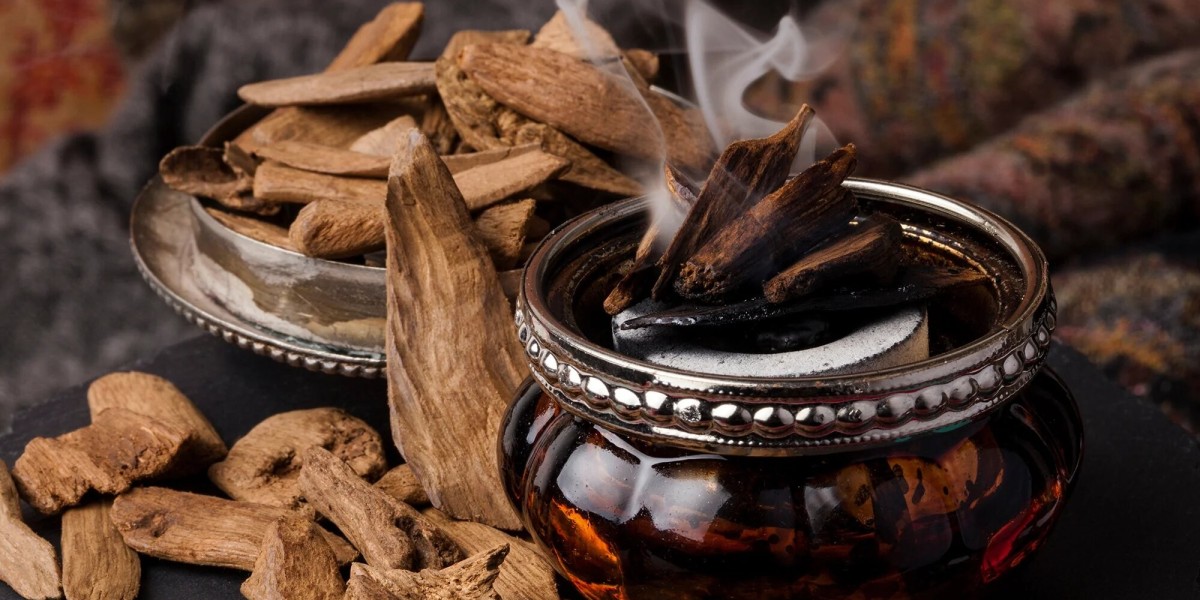In recent years, the world of luxury fragrances has seen a surge in interest towards oud—a rich, fragrant resin sourced from the agarwood tree. Historically celebrated in Middle Eastern cultures, oud has now firmly established its presence in the global perfume industry. In a world increasingly concerned with sustainability and ethical sourcing, the production and trade of oud have come under the microscope. This shift has brought about the need for greater transparency, as well as the development of responsible sourcing practices. One notable figure contributing to this evolution is Saeed Anwar, a former cricketer who launched his own oud brand, Saby Saeed Anwar, in Pakistan. His brand reflects his dedication to promoting oud’s luxurious heritage while ensuring that sustainability and ethics are at the core of his business.
The Importance of Sustainability in Oud Production
Oud, often referred to as "liquid gold," is one of the most precious and sought-after materials in the fragrance industry. Its distinct, deep scent is the result of a natural process that occurs when the agarwood tree, particularly in Southeast Asia, undergoes a type of infection that causes the tree to produce a dark, fragrant resin as a defense mechanism. The resin is then carefully harvested, distilled, and transformed into the iconic oud oil used in perfumes and incense.
However, the beauty of oud is marred by a growing concern over sustainability. The global demand for oud has led to the over-harvesting of agarwood trees, particularly in countries like India, Cambodia, and Malaysia. In some cases, wild agarwood trees have been exploited to the point of near extinction. As a result, there is an urgent need to ensure that oud production is sustainable, ethical, and respects both environmental and human rights.
In the modern world, sustainability in oud production is paramount. Brands like Saby Saeed Anwar, which focus on ethical oud sourcing, are essential for setting a new standard in the industry. By sourcing oud from responsible plantations and ensuring that it is harvested in a way that preserves the ecosystem, these companies help prevent further depletion of the agarwood tree population.
Ethical Sourcing: The Key to Protecting the Agarwood Tree
Ethical sourcing of oud requires brands to ensure that the agarwood trees are cultivated, harvested, and processed in an environmentally responsible manner. Traditional harvesting practices often involve cutting down entire trees to extract the resin, leading to deforestation and habitat destruction. In response to this, forward-thinking companies are focusing on sustainable harvesting techniques, including tree cultivation and resin extraction that do not harm the ecosystem.
Another important aspect of ethical sourcing is ensuring fair labor practices. Workers involved in oud harvesting and processing should be paid fairly, work in safe conditions, and not be exploited. Brands like Saby Saeed Anwar are committed to creating an ethical supply chain that benefits not just the environment but also the local communities involved in oud production.
Moreover, some companies are beginning to explore synthetic or cultivated alternatives to traditional oud, reducing pressure on wild agarwood trees. These efforts are crucial for the future of the industry, especially as the global demand for oud continues to rise.
The Role of Certification in Oud Sourcing
To promote ethical sourcing and sustainability, some organizations have introduced certification programs for oud producers. These programs aim to ensure that oud is harvested in a way that does not harm the environment or exploit local communities. One such initiative is the Forest Stewardship Council (FSC) certification, which guarantees that products come from responsibly managed forests.
Additionally, some companies are opting for organic certifications to ensure that their oud is produced without the use of harmful chemicals or pesticides. This not only supports environmental health but also ensures that the end product is of the highest quality.
For consumers, recognizing certified oud products is an important step towards supporting ethical and sustainable practices in the fragrance industry. Brands like Saby Saeed Anwar are leading the way by sourcing oud from certified plantations and adhering to strict ethical standards, giving customers peace of mind that their purchase supports both the planet and fair labor practices.
Saeed Anwar Oud: A Commitment to Sustainability
As the oud market continues to grow, it is vital that consumers become more conscious of the sourcing practices behind their favorite fragrances. Saeed Anwar, the former cricketer who established Saby Saeed Anwar, has created a brand that exemplifies the fusion of luxury and responsibility. Through his brand, Saeed Anwar oud is not just a fragrance—it's a symbol of commitment to sustainable, ethical, and high-quality oud production. His approach to business is built on transparency, fairness, and environmental respect, ensuring that the beauty of oud continues to be appreciated for generations to come.
The Future of Oud: A Path Toward Responsible Luxury
The future of oud lies in a balanced approach—one that upholds the heritage of this precious material while addressing the pressing concerns of sustainability and ethics. As more consumers seek to make environmentally and socially conscious choices, the demand for responsibly sourced oud will undoubtedly increase. This presents a unique opportunity for brands like Saby Saeed Anwar to continue their leadership in the ethical sourcing movement.
In conclusion, oud is no longer just a luxury product; it is a symbol of the growing trend towards conscious consumerism. With companies like Saby Saeed Anwar taking a stand for sustainability and ethical sourcing, the future of oud is brighter, more responsible, and more accessible to those who value both luxury and environmental stewardship.








